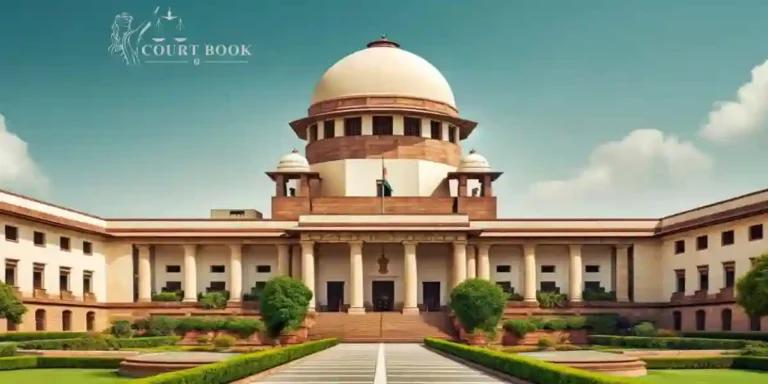The Supreme Court’s Centre for Research and Planning (CRP) has released a detailed report titled “Unclogging the Docket: Tackling Short, Infructuous and Old Cases.” This report outlines a six-month project (November 2024 to May 2025) aimed at addressing long-pending and quickly disposable cases in the apex court.
This initiative marked the first time Differentiated Case Management was adopted in India, focusing on speeding up the disposal of older, shorter, and infructuous cases. Around 10,000 cases pending before the Supreme Court were reviewed, and the ones identified for quick resolution were fast-tracked for hearing.
Read also: Supreme Court Declares Maharashtra’s Zudpi Jungles as Protected Forests, Mandates Strict
“During this period, the first ten matters listed on Miscellaneous (After Notice) days and the majority of matters on regular days were those shortlisted by CRP,” the report stated.
These identified cases were listed across all courtrooms with briefs prepared, argued by lawyers, and heard on merit. This process ensured fair judicial decisions while improving the overall efficiency of case disposal.
The results were notable. Around 2000 cases (1525 main matters and 490 connected cases) were resolved during the period:
“This initiative helped achieve an institutional disposal rate of nearly 104% for the first half of the year,” the report highlighted.
Read also: Supreme Court Criticizes Indian Navy Over Denial of Permanent Commission to Woman JAG Officer
In detail:
- 770 miscellaneous no coram cases (with 173 connected cases) were resolved within just one or two hearings.
- 255 miscellaneous coram matters (with 254 connected cases) were also disposed of similarly.
- On regular hearing days, 376 criminal cases (with 63 connected) and 124 civil cases (with 3 connected) were resolved across 17 hearing days.
These results helped push the criminal case disposal rate above 109%, a significant milestone in reducing the pendency of regular matters.
The CRP team also assisted in:
- Resolving group matters where the main issue had already been settled,
- Reviewing and streamlining 900 MACT cases, and
- Identifying tax cases involving less than ₹5 crore, which led to the disposal of 600+ additional cases.
The report suggests that a planned and consistent listing of quickly resolvable cases can provide a sustainable solution to judicial delays. The experiment demonstrates that internal coordination and structured planning can significantly reduce court pendency.
Read also: "In Personal Liberty Cases, High Courts Must Act Swiftly": Supreme Court Grants Bail After 27
“This was a completely in-house institutional effort involving close coordination with listing, paper book, and tech departments,” the report mentions.
The project was carried out under the leadership of then Chief Justice of India, Justice Sanjiv Khanna, with the active support of other Supreme Court judges. The initiative was managed by Kriti Sharma, an academician skilled in empirical legal studies. She was supported by Padma Ladol (judicial officer), consultants Shubham Kumar and Vrishti Shami, and a dedicated team of 25 clerks.
“This structured approach can be adapted by other judicial bodies as pendency is a shared concern across all levels of the judiciary,” the report concludes.
The full format and data-backed model used in this effort are provided in the report, which aims to serve as a guide for similar exercises in the future.













